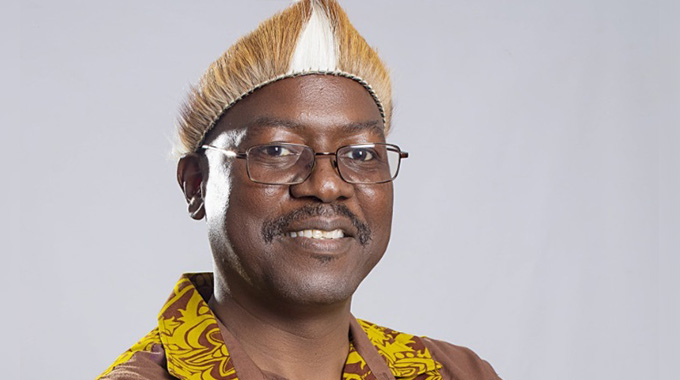Artists and officials debate future of creativity at National Indaba

Sipepisiwe Moyo, [email protected]
THE National Indaba, a two-day event at the Holiday Inn in Bulawayo, wrapped up last Wednesday. It aimed to help the creative industry move from informal to formal work. The Ministry of Public Service Labour and Social Welfare, UNESCO, ILO, and the National Art Council of Zimbabwe supported this initiative, which promises many benefits for creative professionals.
Key figures in the arts and representatives from these organisations discussed how to make this change happen. They shared different opinions, with some asking for a simpler process so that creatives aren’t put off by complexity.
Nicholas Moyo, the Permanent Secretary of the Ministry of Sport, Recreation, Arts and Culture, praised UNESCO and ILO for starting this helpful project.

Raisedon Baya
“Allow me ladies and gentlemen to thank the UNESCO and ILO for partnering the government of Zimbabwe through working with the National Arts Council to supporting the formalisation of the creative and cultural sectors in this country, this collaboration as we already know was undertaken of a baseline study on the state of the informality of the creative and cultural sector of Zimbabwe,” he stated.
The National Indaba highlighted that many artists and creators are not part of the formal sector, which means they often don’t get the same recognition as other workers. It was also mentioned that most artists avoid joining unions, which can be a setback for them and their work. In fact, only nine percent of creatives are in a trade union, and just three percent have employment council coverage.
Valentine Chikosi, speaking for the Zimbabwe Congress of Trade Unions, stressed how crucial it is for artists to formalise their status and join social groups for better support and recognition.
“There is need for the social and just transition mechanism in the process of transitioning from informal to formal. Also note that the absence of social dialogue is exclusion from consultations and agreements that results in non-participation in decision making,” he said.
During the talks, Tafadzwa Muzondo, an artist from Harare, proposed that penalties for renewing registration should be waived to simplify the process for artists. This change could encourage more artists to register.

Valentine Chikosi first Vice President of ZCTU
“Can we put it on record that the National Indaba said the National Art Council of Zimbabwe should waver penalties on renewals, this is a resolution of Indaba,” he said.
Florence Mukanga, a consultant in the baseline study, mentioned that while some might resist the shift to formalisation, it’s important to explain that it’s a step-by-step process with a clear start and finish. After the event, the creatives shared their personal views.
Raisedon Baya highlighted the significance of the discussion, noting the sector’s long-standing informal status.
“We have been talking of arts as a business I think now we should just combine issues and formalise, now the resolution is to prioritise in terms of what needs to be done first in terms of taking the steps towards formalisation, the past two days we discussed on how to formalise and the benefits of formalisation, we then discussed the resolutions, first of all we have to prioritise on what needs to be done first.
“Firstly, we agreed that the National Arts council must waiver some of the subscriptions for those that have not registered for some years so that they register from this year going forward instead of making them pay for the previous years they failed to pay for, the second resolution is that a policy has to be written to support this waiver,” he said.
Josiah Kusena, the head of the Zimbabwe National Arts Council, said the arts and culture community has positively received the workshop.
“This has been a welcome development by our sector as we note that our sector is highly informalised and that formalisation is a process it has to be taken step by step to ensure that sectors are in compliance from issues of registration with the National Arts Council of Zimbabwe and paying the fees of municipality that allow creatives to practice in the cities in terms of compliance with issues of taxation, NSSA because all these issues are looking at the decent work for the art practitioner and the employee in our country.
“By 2030 we want our artists to exhibit and demonstrate that they are living a life of a middle income person, in an economy that is middle class as espoused by our President. We are working towards that formalisation will ensure that we include most of our arts players that are not included in the formalisation process. Vision 2030 is what we aim for in our sector and we want to see progress within our sector and we want to see progress, informality has been a disadvantage in our sector that is our desire,” he narrated.











Comments